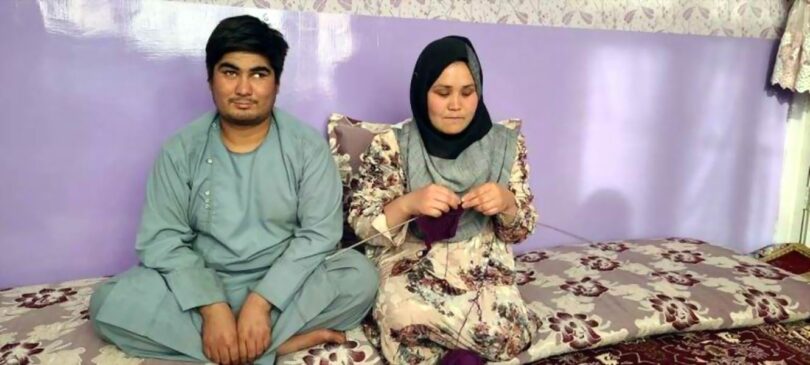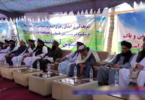KABUL (Khaama Press): Individuals with disabilities in Afghanistan face challenges such as poverty, limited access to education, unemployment, healthcare issues, and social insecurity.
The United Nations designated October 15th as ‘International White Cane Safety Day’ in 1969 to address the issues faced by the visually impaired. Since then, every year, this day has been commemorated worldwide to raise awareness and support for individuals with visual impairments.
People with disabilities in Afghanistan also commemorate this day through separate ceremonies. Before the resurgence of the Taliban in Afghanistan, there were limited opportunities for individuals with disabilities, and they were engaged in various sectors.
However, Afghanistan has been experiencing a crisis over the past two years, affecting all segments of society, especially vulnerable groups. Two years after the Taliban administration took control, the visually impaired are complaining about the lack of job opportunities, limited access to education, and the promotion of cultural stereotypes.
Nargis Kazemi, a 25-year-old woman, has lived with her blind husband in a rented house in one corner of Kabul for three years. She used to work as a weaver alongside her studies in the past, selling her products to contribute to the family income. But, as she puts it, “Conditions have changed, and it has become tough for everyone.” Nargis, who successfully graduated in law and criminology from Kabul University, initially faced family resistance and the Taliban’s ban on girls’ education.
She was unable to continue her studies. Nargis emphasizes that the government has allocated a meagre allowance for the visually impaired, and job opportunities for blind people in the country are scarce. This visually impaired woman, who dreams of having a child, adds, “Before, my nephews used to accompany me, but now that my husband and I live together, we want to have a child to help us leave the house.” She adds, “This is Afghanistan.
One moment it’s good, the next moment it’s bad,” and she is bothered by using the word “blind.” According to the United Nations Human Rights Watch, more than four million people in Afghanistan have disabilities, and many of them, including the visually impaired, face various forms of discrimination.







